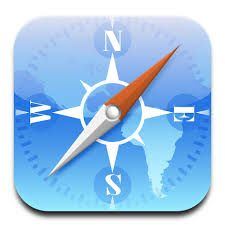
Safari: The Best Browser For Your Mac
Safari browser comes with your Mac and its built-in privacy features are stronger than ever. Privacy and security are something you should always expect, and Safari delivers. It’s built in features help protect user’s privacy and keep your Mac secure. For example, it’s the only browser to offer DuckDuckGo, a search engine that doesn’t track you, as a built-in option.
With Private Browsing, Safari doesn’t remember your search history or your AutoFill information. Each tab in a Private Browsing window is isolated from the others. Thus, websites you view in one tab can’t see your cookies from websites in another tab. (The web pages you visit often leave cookies from third-party websites. These cookies can be used to track where you go on the web, target you with ads, or create a profile of your online activities). Safari blocks these cookies by default. It also prevents third-party websites from leaving data in your cache, local storage, or your databases. All these features help prevent websites you’re logged into from tracking you as you browse. Safari also helps protect you against fraudulent Internet sites and those that possibly harbor malware. If a website looks suspicious, Safari prevents it from loading and warns you beforehand.
The browser works with iCloud to let you browse seamlessly across your devices.
It is faster and more energy efficient than other browsers. Safari allows your notebook battery to last longer between charges, because it is based on energy-saving technologies and has a blazing fast JavaScript engine. Compared with Firefox and Chrome, you can browse for up to two hours longer!
Safari also gives you great ways to find and share your favorites. No other browser offers such a rich web experience, because browsing with Safari makes websites and web applications feel snappier.
This browser now offers native support for Netflix, allowing users to watch Netflix videos faster compared to Chrome and Firefox.
Safari makes it not only simple to find and enjoy the best of the web but provides “Safari Extensions”, a great way to bring even more new features to your fingertips.
The World’s Appetite for Energy
World energy consumption has increased rapidly since the industrial revolution introduced mechanized production methods. However, since the first Earth Day on April 22, 1970, the public has grown increasingly conscious of the environment and the need to be prudent in the use of natural resources. The rate of energy consumption has slowed in the United States since the 1980s, but Americans continue to use energy lavishly compared with every other part of the world.
Americans consume at least 100 quadrillion British thermal units (Btu) yearly. An engine burning 8 billion gallons – 30 billion l – of gasoline produces about 1 quadrillion Btu of energy; 1 Btu equals the energy released in burning one wooden match.
Electronic power production uses the biggest proportion, almost 40 percent, of all energy used in the United States. Transportation consumes about 30 percent of the country’s energy use, industry uses less than 20 percent and residential and commercial buildings use the rest.
Lifestyle and a country’s type of economics affect the rate at which residents consume energy. Many of the highest energy consumers produce very little of the energy their use within their borders. Luxembourg, for example, consumes a rather large amount of energy per capita, yet it produces almost none of its energy. The United States, as a nation, consumes more than 20 percent of all the energy consumed globally; China is the next biggest consumer at 15 percent.
National energy appetites correlate with a country’s industrialization. The International Energy Association (IEA) has estimated that developed countries use about 3,4 million tons of energy sources (on an energy-equivalent basis with oil), but developing countries use only 1.7 million tons.
The world’s consumption of renewable and nonrenewable natural resources can be expressed by a calculation called the ecological footprint. An amount of energy as large as 100 quadrillion Btu is difficult to imagine, but an ecological footprint equals the amount of land and water needed to sustain life and absorb wastes. This can be calculated for a single person, a country, or the entire planet. Since the mid-1980s, the world’s population has exceeded its ecological footprint. In other words, people are consuming resources faster than the Earth can replace them. People are able to notice the effects of a growing ecological footprint when they see polluted water and air, shrinking forests and grasslands, or increasing gas and electricity costs.
The type of energy sources used by society affects the ecological footprint in two different ways. First, some resources require that the land be disturbed to extract the resources,, which produces large amount of dangerous waste. For example, coal mining companies sometimes remove entire mountaintops to get at the coal underneath, and then coal burning puts emissions into the air that cause global warming. Second, by reducing the use of resources that damage and pollute the environment and replacing them with renewable and nonpolluting resources, people can reduce their ecological footprints. At this point in history, every individual’s goal should be to reduce their ecological footprint as much as possible while maintaining an acceptable lifestyle.
Countries reduce their ecological footprints in the same way as people. Countries can minimize dependency on fossil fuels, encourage the development of resources as alternatives to fossil fuels, perfect pollution cleanup methods, and design technology that reuses most of the waste materials that society produces. Countries also must overcome obstacles from politics, international relationships, and the state of their economics. Many factors affect a country’s ability to control its ecological footprint.
See also:
- iGotOffer Encyclopedia: all information about Apple products, electronic devices, operating systems and apps.
- Best place to trade in, sell my used MacBook online. Free shipping. Top cash guaranteed. BBB A+ rated business.






Facebook
Twitter
RSS